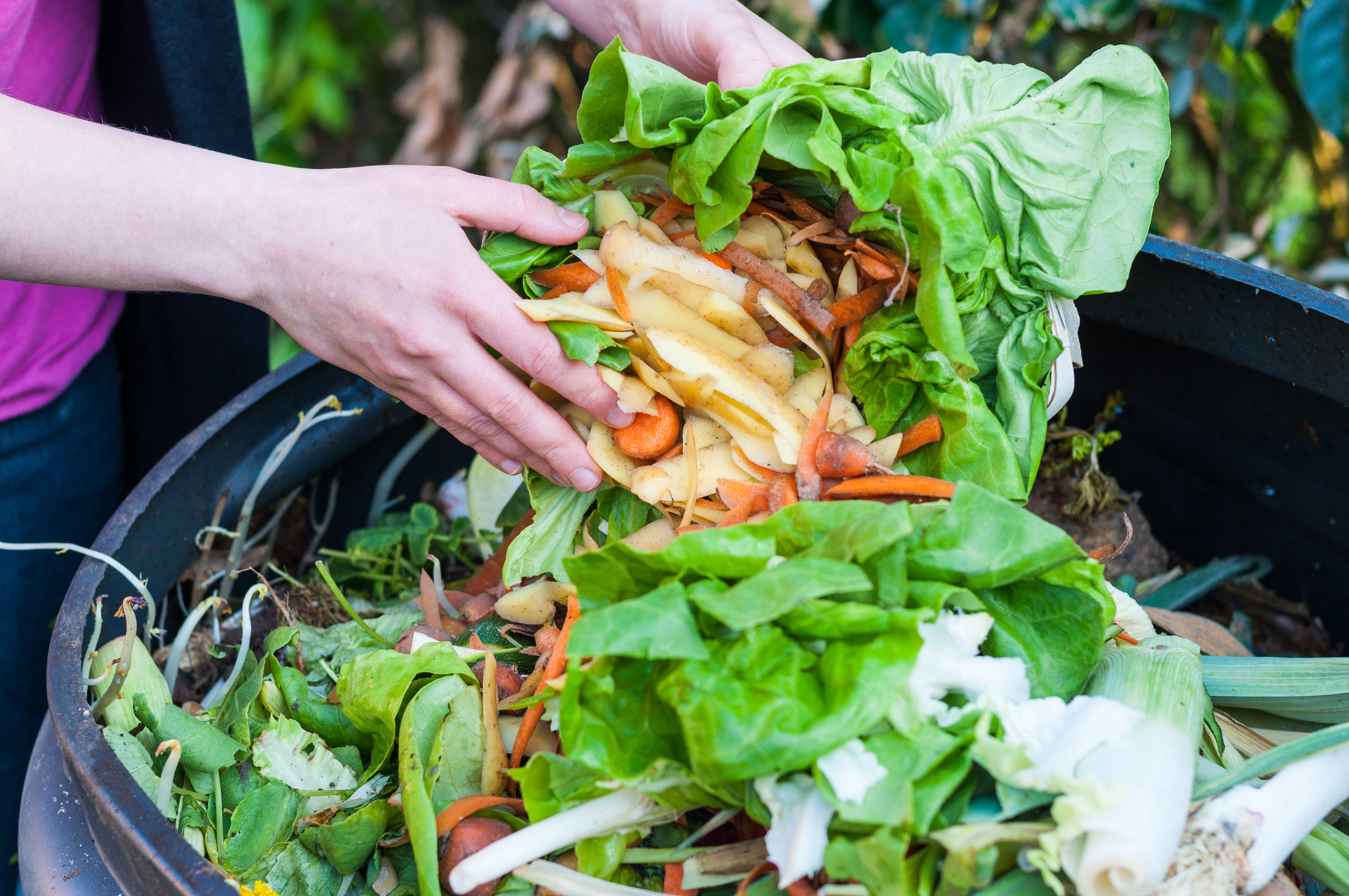The web Browser you are currently using is unsupported, and some features of this site may not work as intended. Please update to a modern browser such as Chrome, Firefox or Edge to experience all features Michigan.gov has to offer.
Partners to present road map to a 50 percent reduction in Michigan food waste
November 22, 2023
If Thanksgiving has you thinking about food and how to avoid wasting it, you’re in good company. As the holiday season of party platters and family dinners arrives, a partnership of nonprofits is rolling out a comprehensive big-picture plan to reduce food waste in Michigan.

Food waste in a container.
Supported by a $100,000 grant from the Michigan Department of Environment, Great Lakes, and Energy (EGLE), the Michigan Sustainable Business Forum (MiSBF) and Make Food Not Waste have engaged other stakeholders and experts in drafting the Michigan Food Waste Policy Road Map – a strategy to cut food waste by half in a decade. The goal is set out in the MI Healthy Climate Plan, Michigan’s framework for a prosperous, equitable, carbon-neutral future that averts the worst impacts of climate change.
The food waste project team is accepting registrations for a series of educational events across the state and online next month to discuss its road map publicly:
- Great Lakes Bay Region: 4 p.m. Tuesday, Dec. 5, at the Pendulum Room at Midland Center for the Arts, 1801 W. St. Andrews Road, Midland.
- Southeast Michigan: 8:30 a.m. Wednesday, Dec. 6, at Jefferson Avenue Presbyterian Church, 8625 E. Jefferson Ave., Detroit.
- West Michigan: 1:30 p.m. Monday, Dec. 11, at Gordon Food Service, 1300 Gezon Pkwy. SW, Wyoming.
- Southwest Michigan: 5 p.m. Thursday, Dec. 7 at Kalsec, 3713 W. Main St., Kalamazoo.
- Webinar: 10 a.m. Wednesday, Dec. 13.
The events will provide opportunities for networking, detailing current practices and proposals for improving public policies and industry-led solutions, and gathering feedback in preparation for a final report and work plan.
The U.S. Department of Agriculture (USDA) estimates that 30%-40% of the nation’s food supply is lost to waste. Globally, climate solutions nonprofit Project Drawdown estimates that wasted food creates about 8% of greenhouse gas emissions and says reducing food waste is the most impactful way to address climate change.
In Michigan, food waste accounts for an estimated $11.9 billion in lost revenue and 11.1 million metric tons a year of carbon dioxide equivalent emissions. Food is the largest source of material disposed of in Michigan landfills and waste-to-energy facilities: as much as 1.5 million tons of food waste a year.
“Michigan can retain enormous environmental and economic value if our farms, manufacturers, retailers, food service providers, and other stakeholders in the food system adopt less-wasteful, money-saving practices,” said Daniel Schoonmaker, MiSBF executive director and a co-author of the road map. “The timing is right, with federal Inflation Reduction Act funding, MI Healthy Climate Plan leadership, and a new statute to improve local and regional materials management across Michigan.”
Recommendations in the draft road map include:
- Developing incentives, funding mechanisms, technical assistance, outreach, policy changes, and other programs to reduce food waste among businesses and institutions.
- Collaboration and the creation of shared language around food waste reduction for businesses and institutions in farming, food manufacturing, food service, and grocery retail sectors.
- Highlighting the need for urgency to leverage opportunities in Michigan, the business case for food waste prevention, and a call for elevated investment from the private and public sectors to develop strategies for achieving the 50% reduction goal.
Learn more about this issue on EGLE’s Food Waste and Recovery webpage.